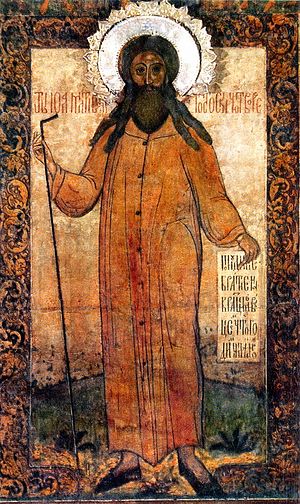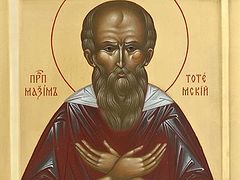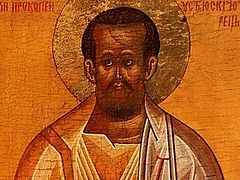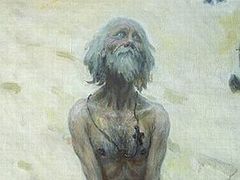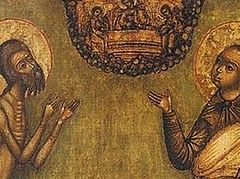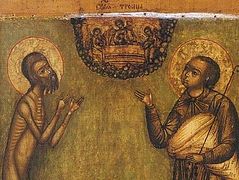Blessed John the Merciful of Rostov (also known as “the Hairy”) struggled at Rostov in the exploit of holy foolishness, enduring much deprivation and sorrow. He did not have a permanent shelter, and at times took his rest at the house of his spiritual Father, a priest at the church of the All-Holy, or with one of the aged widows.
Living in humility, patience and unceasing prayer, he spiritually nourished many people, among them St Irenarchus, Hermit of Rostov (January 13). After a long life of pursuing asceticism, he died on September 3, 1580 and was buried, according to his final wishes, beside the church of St Blaise beyond the altar.
He had “hair upon his head abundantly,” therefore he was called “Hairy.” The title “Merciful” was given to Blessed John because of the many healings that occurred at his grave, and also in connection with the memory of the holy Patriarch John the Merciful (November 12), whose name he shared.

